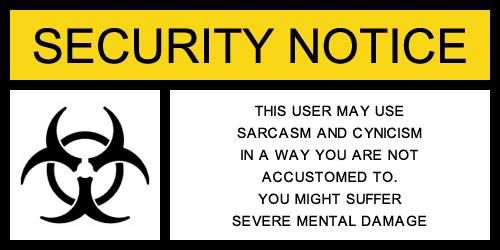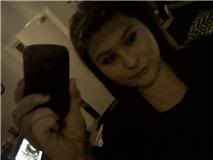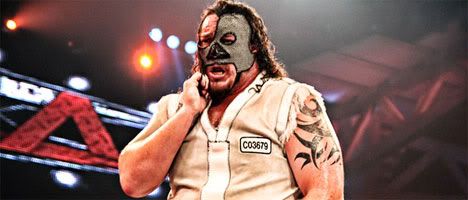Post by b_Pooly on Apr 10, 2009 7:58:14 GMT -5
Published: 4/8/09, 4:06 PM EDT
By MARTHA IRVINE
CHICAGO (AP) - Eily Toyama gave in after friends pestered her to join Facebook. But she used her cat's name instead of her own so she could avoid networking requests from people she didn't really want to connect to. And don't even ask her about Twitter unless you want to get an eye roll.
"I just don't think people need to know that much about my life," says the 32-year-old Chicagoan, who works in information technology.
Call it online sociability fatigue. And it's not just being felt by older folks who have lived most of their lives without the Web. As social networking grows, from stream-of-consciousness Twitter to buttoned-up LinkedIn, even some of the very young people who've helped drive these sites' growth could use a break.
Mike Nourie, a student at Emerson College in Boston, says he feels a little relieved to escape social networking when he works summers at an inn on Cape Cod where connection to the wired world is spotty.
"It gives me a chance to relax and focus on other things like music, work and friends," says the guitar-playing 20-year-old.
Last month, Alex Slater took it a step farther. He dumped his Twitter account and stripped the information on his Facebook page to a minimum. Though he has more than 600 "friends" on Facebook, he checks it much less often.
"Being exposed to details, from someone's painful breakup to what they had for breakfast - and much more sordid details than that - feels like voyeurism," says the 31-year-old public relations executive in Washington, D.C. "I'm less concerned with protecting my privacy, and more concerned at the ethics of a `human zoo' where others' lives, and often serious problems, are treated as entertainment."
A recent survey from the Pew Internet & American Life Project found that 45 percent of Americans in all age groups are enthusiastic about socializing via computer and mobile devices. Meanwhile, 48 percent are indifferent to Internet social networks, overwhelmed by gadgets or often avoiding Internet use altogether.
Perhaps most surprising was the presence of a group that fell in between - the remaining 7 percent of the survey. These people, who had a median age of 29, are savvy about social networks and always carry mobile devices - and yet they feel conflicted about staying in constant contact. Pew called them "ambivalent networkers."
"They have this anxiety about shutting off," says John Horrigan, the associate director at Pew who wrote the report. "They're afraid they might be missing something. But we also find them yearning for a break."
Gary Rudman, who tracks youth trends at GTR Consulting, has seen it, too.
"Bottom line: Who wouldn't be fatigued, given all of the social and business networking obligations thrust among young adults? With Facebook, LinkedIn, Plaxo and Twitter, young adults struggle to keep up to avoid the consequences - being left out of the loop or becoming irrelevant," Rudman says.
Jennavieve Bryan, a 25-year-old student at Golden Gate University in San Francisco, is still holding out from online social networking for now. She admits to feeling "a little twinge of jealousy" when she sees her friends' lives so nicely laid out on an online networking page, but she thinks it's too much trouble for too little reward.
"When my friends find out I don't have a MySpace or, God forbid, a Facebook page, they look at me like I should be exiled from our social circle," she says.
It shouldn't be surprising that quick-hit online communications, the stuff of 140-character "tweets" on Twitter and "status updates" on Facebook, leave some people cold. Craig Kinsley, a professor of neuroscience at the University of Richmond, notes that studies of human interactions reveal that our brains crave networking, online and off, but differentiate between the quality of the interactions.
"Many short contacts may leave the user wanting deeper, more meaningful exchanges. Like a meal of cotton candy, when you come right down to it, there is not much substance," he says. "A good conversation with a good friend is much more life-affirming than a few tortuously abbreviated or emoticon-filled lines in a tweet that anyone can read. How special is that?"
Paul Herrerias thinks more people are starting to get that.
Nearly seven years ago, Herrerias, managing director of the San Francisco office for Stanton Chase, an executive search firm, started a "CEO Club," a monthly breakfast meeting for executives looking for work after the dot-com bust.
"We could do a lot of this online. But it's the breakfast and looking people in the eye that fires them up," Herrerias says, noting that some people drive more than an hour to attend. "There's an empathy that goes on between us. I care about their needs and they care about me."
my.att.net/s/editorial.dll?fromspage=ch/c.htm&categoryid=&only=y&pnum=2&bfromind=8330&eeid=6497762&_sitecat=214&dcatid=0&eetype=article&render=y&ac=3&ck=&ch=ne
personally, I think you have to be a twit to have one... or at least that would make more sense to me. I'm sure Draven, Christine, and I have already shown, well at least each other, that if you want to get in contact with someone, there are a million other ways to do do it. Instead of wasting time and money on way one billion to get in contact with people, why not use it on something that's actually important.
Hell, like a Sprint commercial blatantly stated last night, most don't even know what twitter is. I'm pretty sure I am the only person that knows about it (somewhat anyways) and is annoyed by that fact... thanks a lot Christine!




On a side note, I now know how a movie critic feels, I wrote this whole response without actually reading the article.






